
Gender equality is a human right. It is also essential for eradicating poverty and improving the lives of future generations. Gender equality is at the heart of all our programming and advocacy work. IPPF pushes for legal and policy reforms which combat female genital mutilation (FGM), early forced marriage and other forms of gender discrimination.
Articles about Gender equality
"Together we can #StopViolence" - Yvonne Chaka Chaka join IPPF campaign
Artist and women's rights activist Yvonne Chaka Chaka joins IPPF campaign for the elimination of violence against women and girls, and invite people to follow! Write your message against gender-based violence, tell the world you're sick of it, and want to #StopViolence! Artist and women's rights activist Yvonne Chaka Chaka joins IPPF campaign for the elimination of violence against women and girls, and invite people to follow! Write your message against gender-based violence, tell the world you're sick of it, and want to #StopViolence! Facebook Filter: https://www.isupportcause.com/campaign/im-sick-of-violence-against-women
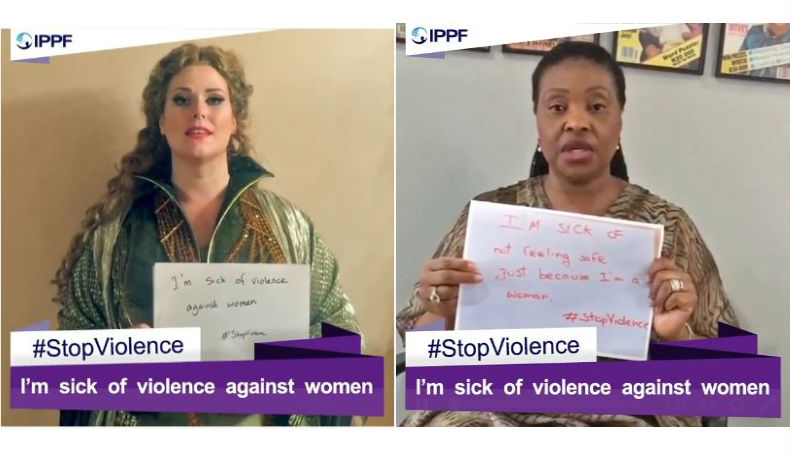
"I'm sick of violence against women" artists and campaigners call to #StopViolence
International Planned Parenthood Federation Champions, Jessica Pratt and Yvonne Chaka Chaka, are joining forces with campaigners from around the world calling for an end to violence against women. Jessica Pratt, an opera singer, took a moment from her busy rehearsal schedule to say "I'm sick of violence against women" While singer Yvonne Chaka Chaka reminded how violence is often used by husbands and male relatives to impose their will on women and girls. One in three women worldwide have experienced violence in their lifetime, often from a relative or an intimate partner. November 25th marks the start of the 16 Days of Activism against Gender Based Violence which ends on December 10th with Human Rights Day. Please join Jessica and Yvonne and tell us why you are sick of violence against women. You can take a photo or holding a sign telling what aspect of violence against women you’re sick of, and using the hashtag #StopViolence Also, you can add IPPF filter to your Facebook photo, to share the campaign with your friends! What's the aspect of violence against women that you're most sick of? Share it, say the world to #StopViolence Powered by Curator.io var curatorConfig = { container:"#curator-feed" }; (function(){ var i, e, d = document, s = "script";i = d.createElement("script");i.async = 1; i.src = "https://cdn.curator.io/published/6052ce1a-b75f-424a-baa3-3787e062.js"; e = d.getElementsByTagName(s)[0];e.parentNode.insertBefore(i, e); })();
The mother of six struggling with sickle cell
Lillian Lamunu and her husband are both out of work and are struggling to look after their six children who all have Sickle Cell Disease. Lillian is worried that if she doesn’t do something soon she might end up having another baby. She spoke to one of RHU’s clinicians who told her that they saw she had a lot of problems and a lot of children. The clinician suggested that she went and got family planning but Lillian wanted something more permanent. “I want them to remove my tube. Let me remain with these six children. Because my children were all born with Sickle Cell Disease and keeping them is very difficult,” said Lillian. She opted for tubal ligation but her husband was yet to grant her permission to undergo the surgery so that she stops giving birth. “I know that he might be convinced but I don’t know when” Lillian added. One Ugandan commentator said that in Gulu like the rest of Uganda, contraceptive use was still too low and their uptake was still largely driven by male dominated culture and patriarchal values. Lillian said that it was very expensive looking after her six children who all need daily medication. “I don’t have enough money for keeping them,” she said. Much of her time is spent in hospital with her sick children so she says that she is unable to get a job. Follow a day in the life of our team and clients in Gulu, Uganda 07:00 08:00 9:00 10:00 11:00 12:00 13:00 14:00 15:00 16:00 17:00 22:00 Prev Next 7am: The team prepare for the long day ahead "Every year tens of thousands of Ugandans come to our clinic. Everyone is welcome. Here are just a few of the people that we served in one day last month." READ MORE 8am: Nancy, 19, becomes a volunteer "I was suffering but when I came here, I was treated and I got better. Now I'm inspired to volunteer here" READ MORE 9am: Monica, 25, a sex worker's story "I am sex working. I came here for Hepatitis B testing and also counselling. I have so many personal problems, but here….they’re so caring." READ MORE 10am: Jane, 23, saved by family planning "After multiple miscarriages, family planning here has helped me a lot. I'm glad we've been able to space the number of children we've had. I am not growing old, I am fresh." READ MORE 11am: Vicky, handling disabilities "I'm deaf so accessing services is hard, but here they really try to speak in sign language." READ MORE 12pm: Dorcus, first time patient "This is the first time I've ever come here, I like the service. They give good counselling so I recommend coming." READ MORE 1pm: Christine, 45, a grandmother's tale of living with HIV "I am living with HIV and had HPV. They treated me and now I'm free of cervical cancer." READ MORE 2pm: Lilian, struggling mother of six with sickle cell " I have sickle cell disease and so do all my children. I want to have my tube removed so that I don't get pregnant again but I don't know if my husband will allow it." READ MORE 3pm: Brenda and Francis get fertility treatments "Fertility treatment is a sensitive issue in Uganda but they help us a lot and we get proper treatment." READ MORE 4pm: Joyce, 25, repected regardless of her disability "I realised that at this place they don't segregate. Us people with disabilities have challenges at the main hospitals. You go there, people around look at you as if you are not a human being and you don't fall sick." READ MORE 5pm: Mobile clinic provides outreach services to remote villages "Our outreach to remote communities is a 'one-stop-centre'. We give family planning, vaccines for HPV, malaria, and Hepatitis B, HIV testing and more." READ MORE 22pm: Still giving the last client our very best "Together, we have great teamwork. Sometimes we're still working up to 10pm because we never chase out our clients. We’ll never close the place when we have a client inside. People come when they have no hope." READ MORE
Let’s accelerate change for rights, power and opportunities for every girl around the world
The International Planned Parenthood Federation (IPPF) welcomes United Nations Population Fund’s 2016 State of the World’s Population (SWOP) report ‘10’’ on the future for young girls at age ten. The human rights of girls across social, economic and political life are deeply intertwined and indivisible. Girls are often left behind, given no voice or an opportunity to aspire for a future. There is no denying that this is the story for many girls in both developing and developed nations around the world. UNFPA’s report demonstrates clearly how the lives of young girls can be changed at the age of 10. It highlights how gender norms for girls can lead to early and forced marriage and having children far too early. Tewodros Melesse, Director General of International Planned Parenthood Federation, said in response to the launch of the UNFPA report today. “Early marriage reduces girls’ access to education, and anticipation of an early marriage often prevents secondary education for girls. When a girl is not able to go to school and receive an education, there is a knock‑on effect on her future work opportunities and also her health. This not only impacts on the individual lives of girls, but also perpetuates systemic gender inequalities where the rights of girls are valued less than that of boys. This is a vicious cycle we have to break. Young girls are a big focus for the Federation. We also work with all those who can help make the shifts that are needed so a girl can decide her own future both freely and safely. Our comprehensive sexuality education is progressive and part of our package of rights-based interventions available through our Member Associations to tackle gender norms but also empower girls in their communities. IPPF puts girls first and the center of what we do. By respecting and fulfilling their right to high quality services. We stand for girls by supporting them in making their own decisions related to their rights, sexuality and pregnancy. We work not only to amplify their voice, but to have them involved, build their resilience and take control of their own destinies. Over the past decade, we have made significant progress to advance girls’ rights to education, health, and security. But we only have to look at the facts to know that more changes are needed. As UNFPA’s report demonstrates, we need to look towards the future and with a positive frame. By protecting girls, giving them access to services and education they will be able to build their own futures as a basic human right. Let’s not turn our backs but accelerate change for better rights, power and opportunities for every girl around the world.”
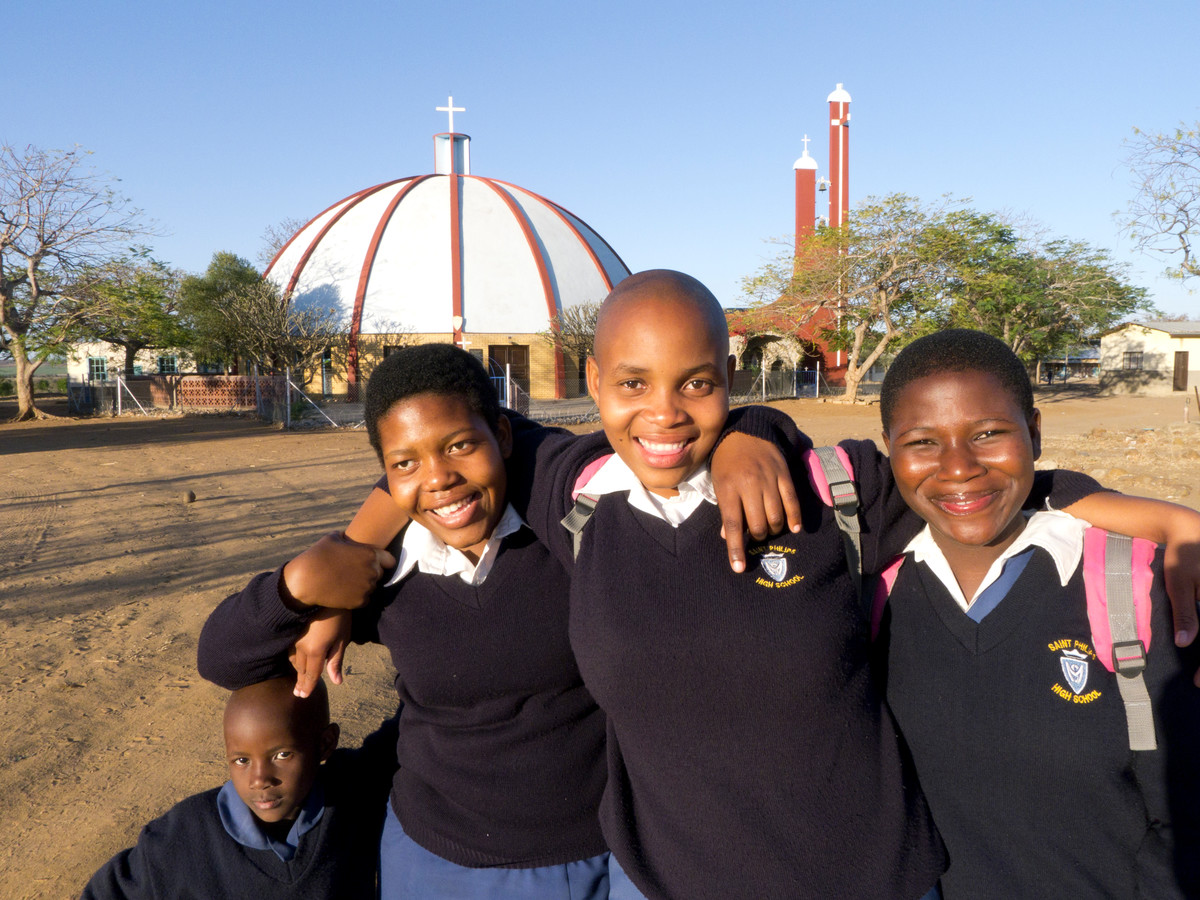
Why Data Holds the Key to Girls’ Futures
by Hayley Gleeson, Project Coordinator for ACT!2015 and Ruben Pages, Youth Programmes Coordinator at UNAIDS. Over the past decade, we have made significant progress to advance girls’ rights to education, health, and security. Today, girls are more likely than ever to be in school, and to have access to life-saving health services including vaccinations.[1] However, there is still much to be done. Girls are still born into a world where they face many layers of social and political disadvantage and discrimination. The Beijing Declaration and Platform for Action, a landmark blueprint for advancing women’s rights, was adopted in 1995 and brought these issues to the global stage - but in 2014, marking its 20th anniversary, the United Nations Secretary-General Ban Ki-Moon acknowledged that “overall progress (...) has been unacceptably slow, with stagnation and even regression in some contexts. Change towards gender equality has not been deep enough, nor has it been irreversible.” Today, October 11, marks the International Day of the Girl Child, adopted by the United Nations General Assembly in 2011 to recognize girls’ rights, promote their empowerment, and take stock of the pending obstacles that girls need to overcome to fully exercise their rights. Gender-based violence, early and forced marriage, economic disempowerment, unintended pregnancy, and inadequate access to sexual and reproductive healthcare, including HIV services[2], continue to affect and jeopardize the lives and future prospects for girls and young women. In the context of HIV, girls are disproportionately affected, making up about two-thirds of all new HIV infections in adolescents.[3] This year, the theme of the International Day of the Girl Child is “Girls’ Progress = Goals’ Progress: What Counts for Girls”, a fitting theme for 2016 which marks the one year anniversary of the adoption of the 2030 Agenda for Sustainable Development, also known as the Sustainable Development Goals (SDGs). The SDGs provide a strong framework for advancing the rights of girls, including a specific goal on achieving gender equality and empowering all women and girls by 2030, along with commitments to universal access to free and equitable primary and secondary education and to sexual and reproductive healthcare services for all girls. In addition, building on the 2030 Agenda as well as previous high-level commitments to the HIV response in 2001, 2006 and 2011, in June 2016 Member States adopted a Political Declaration on HIV and AIDS: On the Fast-Track to Accelerate the Fight against HIV and to End the AIDS epidemic by 2030. With this Political Declaration, Member States pledged to “ eliminate gender inequalities and gender-based abuse and violence, increase the capacity of women and adolescent girls to protect themselves from the risk of HIV infection”, and committed “to respect, promote and protect their human rights, education and health, including their sexual and reproductive health.[4] In order to achieve these goals by 2030, we need to design and implement evidence-based, tailored, gender-sensitive programmes that target the barriers to girls’ empowerment and the fulfilment of their rights, while at the same time fighting at the highest level against legal and policy barriers that deny women and girls the opportunity to reach their full potential. Efforts to achieve the SDGs and the commitments made through the Political Declaration on HIV and AIDS will fall short if there is not an accurate and comprehensive picture of what’s going on in girls’ lives, and the factors that increase their risk and vulnerability to HIV and violence. It is critical to address the gaps that exist in our current collection, analysis and use of data and evidence on women and girls. This year’s International Day of the Girl Child calls for “explicit focus on collecting and analyzing girl-focused, girl-relevant and sex-disaggregated data, and using these data to inform key policy and program decisions”.[5] This is the only way that we can understand and communicate the challenges that girls face, and develop and monitor solutions to these challenges. A greater investment in collecting comprehensive data on girls’ health and wellbeing is in itself a strong response to exclusion and inequalities - data helps raise the collective voice of the most marginalized, and direct it towards those with the responsibility to ensure better laws and policies. This helps us provide a platform from which to advocate for progressive policies that respect, protect and promote the rights of women and girls.[6] Together with UNAIDS, The PACT, and youth-led organisations in 12 countries, IPPF coordinates ACT!2015, a unique youth-led initiative which aims to tackle this data problem by engaging young people with data-driven accountability and advocacy around sexual and reproductive health and rights (SRHR) within the SDGs. Winfred Ongom, a member of the ACT!2015 youth alliance in Uganda, said “the biggest challenge in using youth-led accountability is that data is not easily available and is hard to interpret. If we fail to understand it then it is hard to hold anyone accountable” - so ACT!2015 aims to increase young people’s knowledge and understanding of SDG and indicator frameworks, national monitoring and evaluation strategies, and research methods to enable them to advocate for youth-friendly indicators to be measured at the national level in order to improve young people’s sexual and reproductive health. Over the next 14 months, youth alliances in the 12 ACT!2015 focus countries will identify a key policy barrier to young people’s SRHR in their country, and assess the scope and impact of this issue using existing data sources supplemented by youth-generated qualitative and quantitative evidence. They will then use this data to advocate for better policies for young people and to hold governments accountable for their commitments to HIV and SRHR in the context of the 2030 Agenda. Engaging young people in these processes ensures that we are collecting the right type of data in the right ways, and that national-level data sources capture representative experiences of young people. It allows us to look “behind the scenes” at how policies and programmes impact young people on the ground, and highlights inequities and disparities across groups in terms of access to comprehensive sexuality education and sexual and reproductive health services. “Data is and always will be the bloodline of decision making, and the raw material for accountability”, says Nicholas Niwagaba, from the ACT!2015 alliance in Uganda. It’s crucial that governments have access to the most up to date, representative data on young people, disaggregated by age, sex, and other relevant factors, when making decisions about laws and policies that will have an impact on young people. This International Day of the Girl Child, we urge young people, and young girls, to hold their governments accountable for their commitments to young people’s health, to ensure that no-one is left behind in the global development agenda. [1] http://www.un.org/en/events/girlchild/background.shtml [2] http://www.unwomen.org/en/news/in-focus/girl-child [3] ALL IN: http://allintoendadolescentaids.org/wp-content/uploads/2015/02/ALL-IN-Launch-Document.pdf [4] http://www.unaids.org/sites/default/files/media_asset/2016-political-declaration-HIV-AIDS_en.pdf [5] http://www.un.org/en/events/girlchild/ [6] http://www.unicef.org/gender/gender_66021.html
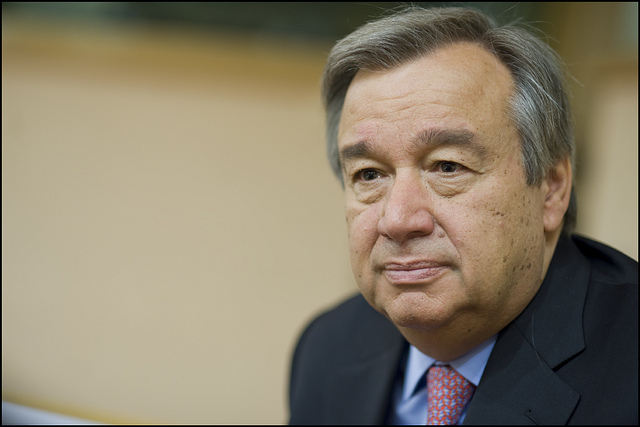
IPPF welcomes new UN Secretary General
Excellency António Manuel de Oliveira Guterres, I am writing to you to today on behalf of our 152 national Member Associations, and the millions of staff and volunteers that work for the International Planned Parenthood Federation in over 172 countries. We would like to congratulate you on your appointment as the ninth Secretary General of the United Nations, and express our commitment to working with you and the United Nations system throughout your term. As the largest civil society organization working in the area of sexual and reproductive health and rights, we collaborate with United Nations in the advancement of this critical agenda. We believe that a close and constructive relationship with you and your team will continue the development of an enabling environment for the provision of life-saving services, the promotion of gender equality and the realization of all human rights and fundamental freedoms for all. With the world in the first stages of the implementation of the 2030 Agenda, your leadership in the area of sustainable people-centered development is critical; a human rights based approach, gender equality and the realization of sexual and reproductive health and rights is central to achieving progress under all of the sustainable development goals and targets. We encourage you to ensure that these issues remain priorities for you and the United Nations and offer our support to do so. With your leadership and support, we will be able to ensure that all women and girls have access to family planning services, can live free from violence and are able and empowered to participate fully in the life of their communities. As an organization working for gender equality we were delighted to hear you pledge to ensure gender parity at the UN and your promise to work for the promotion, protection and respect of women’s rights. I, alongside IPPF Member Associations and partners, stand ready to work with you in your new role and to set in place the programs and initiatives that will ensure 2030 Agenda is fully implemented. Working together, we can achieve the ambitious goals that the global community set just one year ago, and ensure that truly no one is left behind. Yours sincerely, Tewodros Melesse Director General
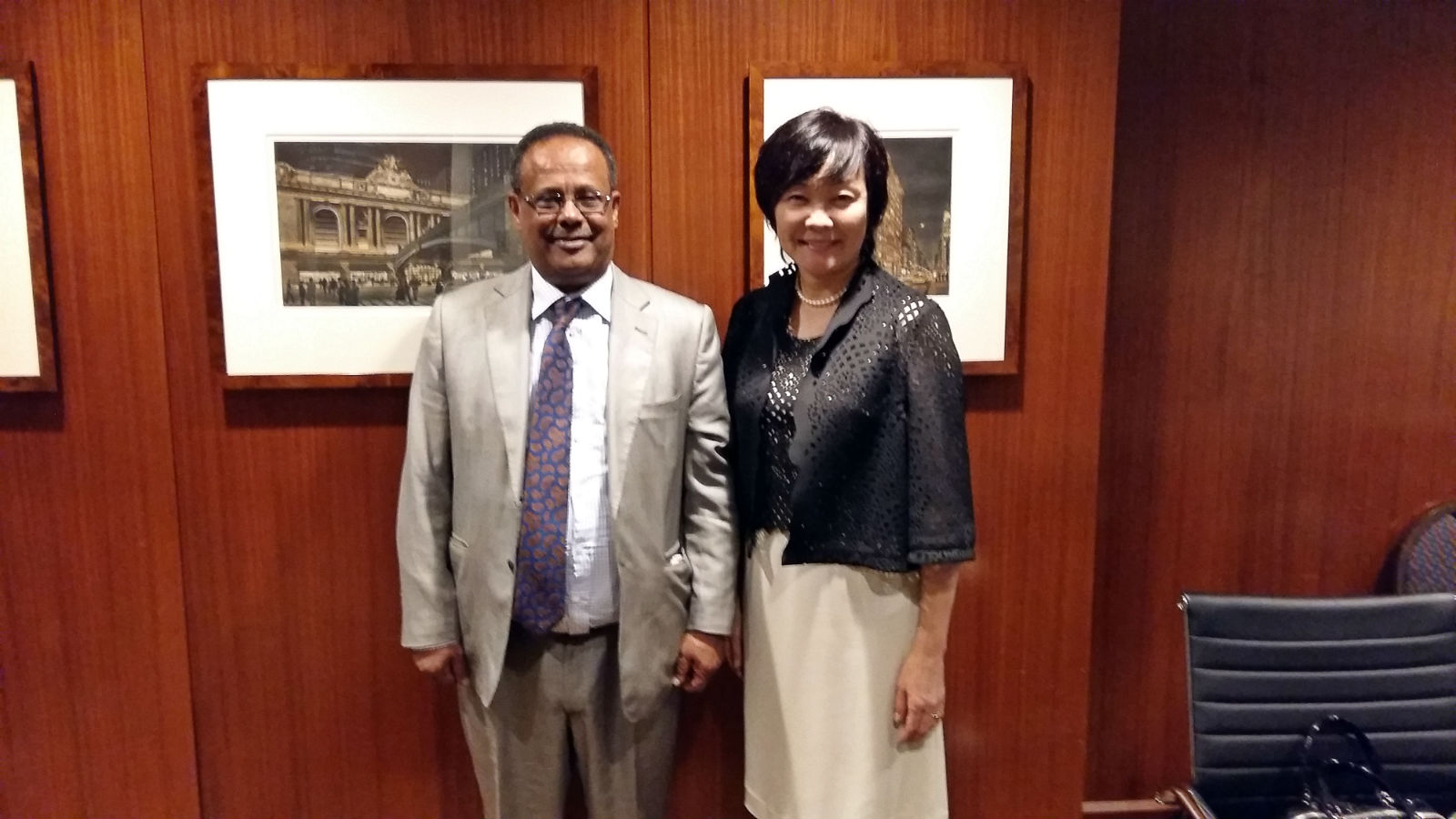
Japan’s First Lady and IPPF together for a world without discrimination
Japan’s First Lady, Her Excellency Mrs Akie Abe, and IPPF’s Director General Tewodros Melesse have agreed on the need to continue the fight to strengthen women’s health and rights, in a High Level Meeting in the margins of the UN General Assembly 2016 in New York. Japan is a strong supporter of IPPF’s work in the area of sexual and reproductive health and rights, and Mrs Abe has a personal commitment to improving the lives of women through her work with the World Assembly of Women (WAW), an initiative launched by her husband His Excellency Mr Shinzo Abe, the Prime Minister of Japan, in 2014 to create a society where women shine. Mrs Abe has spoken before about the need to tackle discrimination against disenfranchised communities, and noted again in her meeting with Mr Melesse the discrimination faced by the LGBTQI community. Mr Melesse said: “Mrs Abe is a tireless supporter of the rights of women and communities which face discrimination, such as the LGBTQI community. IPPF and Mrs Abe share the goal of empowering women and building a world without discrimination. I look forward very much to working more closely with Mrs Abe in the future.”
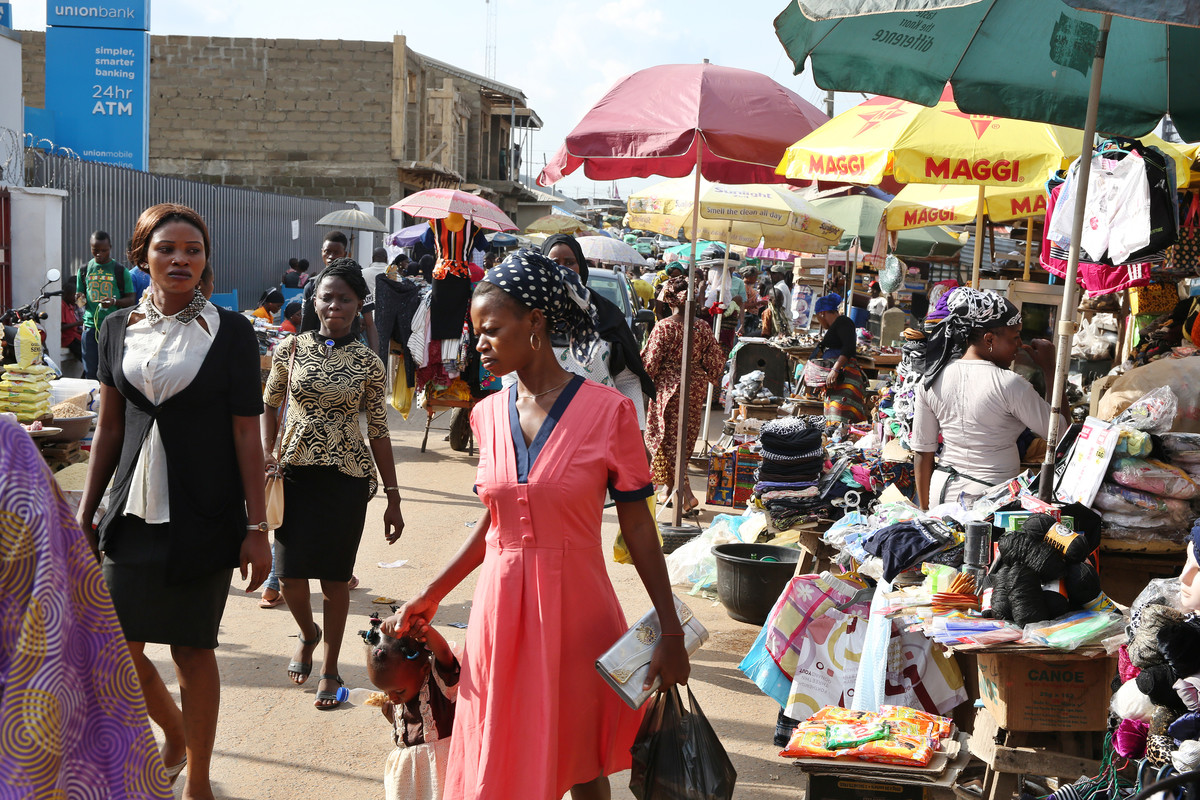
Leaders must take action now to help women and girls
For the last 16 years, health worker, Olufemi Fabiyi has gone out to some of the hardest areas to reach in rural parts of Nigeria to give sexual and reproductive health services to some of the world’s poorest people. She’s seen a lot during that time but one particular story stands out for her. One day she was in a market when she was approached by a man who appealed for her to visit his younger sister. When she got there she met his sister who looked about 50. It turned out she was just 29-year-old but she had already had 12 children because she had not been able to get contraception. “The burden and labour of delivering 12 children could be seen all over her,” Olufemi said. She was worried about how the woman could possibly raise that many children and how she would support them financially. This woman, like 230 million others around the world, wanted to get contraception so she could decide how many children to have and when she wanted to have them but the services were not available to her. As the world marks the first anniversary of the adoption of the Sustainable Development Goals (SDGs) we believe that we have the opportunity to help women and girls in the same situation around the world. The SDGs set out a global commitment to end poverty and to ensure sustainable development was not ignored. Only twelve months ago, every government at the United Nations signed up to the 2030 Agenda on Sustainable Development and agreed to take unprecedented steps to achieve gender equality and ensure access to sexual and reproductive health. The commitment is there but we now need to make sure that this translates into action on the ground, action at country level around the globe. At the International Planned Parenthood Federation we believe that the ambition set out in the SDGs is clear. Gender equality, women’s and girls’ human rights, and the empowerment of girls and women will not be possible without the realization of sexual and reproductive health and rights. Providing the full range of sexual and reproductive health services, information and education so that all women and girls can make free and informed choices about their sexuality and their reproductive lives is a basic human right and central to realising the full range of women’s rights, and to progressing gender equality. If we work together and harness the commitment of organisations such as my own, we can collectively develop programmes and policies that will allow every country to deliver on the commitments that they made just one year ago. Achieving sexual and reproductive health and rights, and gender equality is not just an end in itself. Enabling everyone to access these life-changing services will support the elimination of poverty and hunger, achievement of gender equality and quality education, reduction of inequality, adaptation to climate change, and sustainable consumption. Without access to sexual and reproductive health services and education achieving some of the other goals will become a much harder task, while others will be impossible to realise. Words are easy but now is the time for real political will to translate these ambitions into action. We cannot risk failing on all the goals due to a lack of political will to implement those related to gender equality and SRHR. It’s time we held politicians to account to ensure that every woman and girl - wherever they live - can get the contraception they want so they can choose for themselves and their children. Celebrate the 1st Birthday of the SDGs with us! Share the cake and share our message: sexual and reproductive rights are crucial for the achievement of the Sustainable Development Goals!
Kicking off the 2016 AWID Forum; imagining #FeministFutures
Reflections from Preethi Sundaram, Policy and Advocacy Adviser at IPPF who is participating at the AWID forum Today marked day 1 of the 2016 Association of Women's Rights in Development (AWID) Forum. Today’s sessions focused on “current realities”, with the opening session highlighting the divided world we live in and some of the real challenges that feminist activists face; the rise of the right, of fundamentalisms, a shrinking civil society space and less funding for women’s rights. We discussed the overlapping privileges of class, race, ethnicity and caste that marginalize women; poor women, disabled women, black women. The Forum is being held in Bahia in Brazil purposefully to honour and acknowledge the struggles of black feminists in the area and also around the world. The declaration from the Black Feminists Forum, held from the 6-8th September, was read aloud on stage and sparked a swell of solidarity from across the room. As the indigenous women’s rights activist Myrna Cunningham eloquently reminded us ‘none of us are free until all of us are free’. And so the tone was set for a day of feminist exploration and hope. IPPF spoke at a session organised by Women Deliver, discussing the new campaign ‘Deliver for Good’. IPPF is the lead partner for sexual and reproductive health and rights (SRHR) and we raised the centrality of investing in SRHR for women and girls to realize their full range of human rights and to achieve sustainable development. We also participated at a session on abortion rights which highlighted the dire impact the criminalisation of abortion has on women’s lives. We heard about country specific contexts such as India where despite the existence of fairly liberal abortion laws, women struggle to access services, with many pregnancies being unplanned and unwanted. A session on women’s economic rights and macro-economic policies challenged me to think more about how we can mobilize across the reproductive justice and economic justice movements. As reproductive justice advocates we must talk more about more about how macro-economic policies affect women’s SRHR if we are seeking to shift structural inequalities ( to read more about this issue, see a blog IPPF authored for the Oxfam Herseries on SRHR and women’s economic empowerment). The day ended with a sobering tribute to the lives of women’s human rights defenders from around the world, many of whom have been killed because of their feminist activism. The lives of women who have fought tirelessly for the collective good were honoured and celebrated and the tribute ended with the words, “we honour our dead and fight like hell for the living” read out by women in Portuguese, English, Spanish, French and Arabic. The first day of the AWID Forum has surpassed all expectations. Being surrounded by 2000 feminists from around the world, discussing issues of justice, destabalizing power structures, dismantling privilege and building solidarity across movements has revived the fight in me. As we move on with tomorrow’s agenda, we’ll look at our vision ahead, and how together we can build a feminist future. Follow what’s happening at the #AwidForum on twitter
Towards a Future where Women Shine in Society: Light Switches to transform women’s status and health
Switching a light on before dawn and after dusk. "Click". And it gives light. This everyday action, which most people in the world take for granted, is new for women living in non-electrified villages in Africa. Being able to switch on a light has brought radical changes to their lives. This brochure tells you an innovative partnership involving public, private sectors and civil society in Ghana, which has not only brought light but also better health and status to the village women. This project was supported by the IPPF Japan Trust Fund (JTF).
Pagination
- Previous page
- Page 10
- Next page






